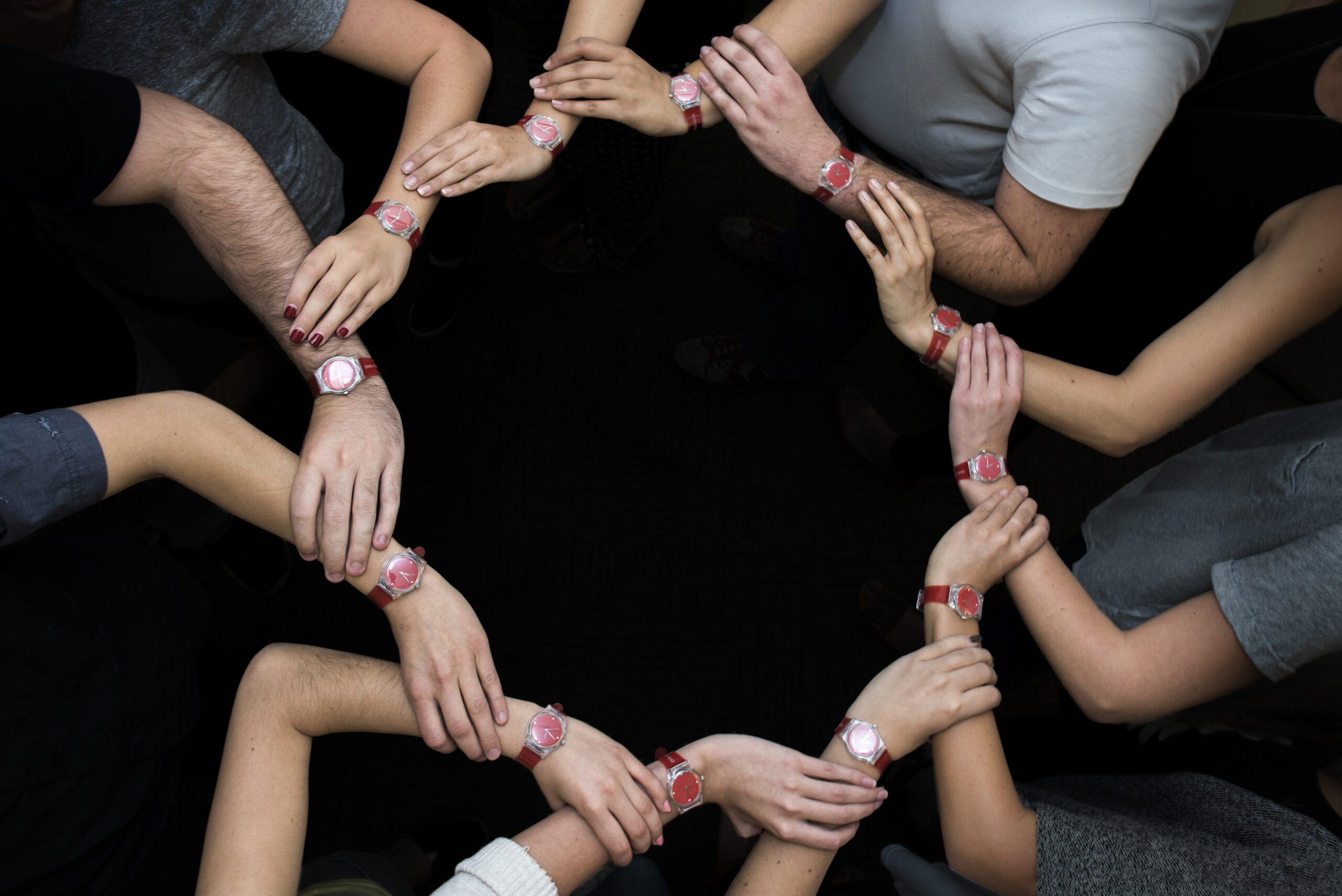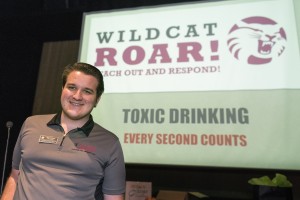Power in Numbers

The Campus Alcohol and Drug Education Center (CADEC)’s peer education team sport their red watches—a signal that they can help out in risky situations related to alcohol or drugs. (Photo by Jason Halley)
This year, student leaders welcomed their newest peers to campus by teaching them how to live the Wildcat Way.
All first-year students attended an hour-long reception called Wildcat ROAR (Reach Out and Respond), during which peer educators taught them how to stay safe on the social scene, how to recognize when someone’s in trouble with drugs or alcohol, and how to get help.
“This is really something that only students can tackle,” said psychology major and senior peer educator Evan Thibeau. “We are the ones that are going out, so it’s really important that we know how to look out for each other.”
Peer educators are juniors and seniors who work at the Campus Alcohol and Drug Education Center (CADEC) and receive specialized mental health, first aid, and bystander intervention training.
The new mandatory sessions intentionally marry dialogue about academic expectations with the social values it takes to build a community of students who look out for each other.

“We are a tight community,” Thibeau said. “Students care, the faculty care—on every level this campus is really valuing this.”
Alumna Nancy Hodges (BA, Education and Credential, ’55) began donating to CADEC after her daughter Pamela Jean Talley died of cirrhosis at age 29.
“If she had gotten the right person it might have made a difference,” Hodges said.
Often, the person who can intervene early enough to prevent life-threatening consequences is a friend, which is why the peer-to-peer model is shown by researchers to be so effective, said CADEC Program Director Trisha Seastrom.
When asked why she chose to support CADEC, Hodges simply said: “It saves lives.”
“It saves lives.”
—Alumna Nancy Hodges, on Chico State’s alcohol education program
And she’s right, Seastrom said. Research tells us that academic and social patterns, including those related to alcohol and drug use, are established within the first six to eight weeks of college and persist throughout a person’s college experience.
So, for peer educators, “this program allows them to believe and know that they make a difference—that one person or that small group of people truly can make this community safer,” Seastrom said.
As CADEC’s efforts continue to grow and reflect Chico State’s unique community spirit, Thibeau has noticed more students sporting red watch bands—a visible signal to other students that the wearer has completed an additional two-hour Wildcat ROAR training.
“That would not have been possible if it weren’t for those donors that have really been helping us out,” said Thibeau, who counts himself lucky to do this work. “…There’s this face that people make where it just clicks for them—and that is one of the best
things for me.”
The helping patterns that CADEC is working to establish early in students’ lives embody the same spirit Hodges is memorializing with her annual giving—students looking out for one another.
“I think it’s what my daughter would have wanted,” said Hodges, who has also set up a charitable remainder trust to help the College of Behavioral and Social Sciences develop classes for students going into substance abuse prevention and mental health fields. “If she saw somebody that needed help, there she was.”


